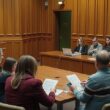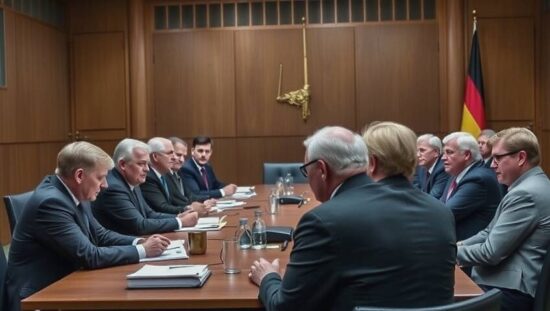A German politician, Carsten Linnemann, has proposed a one-year term for a potential coalition agreement with other governing parties. In an interview, he described his plan, saying, “For a year, just a coalition agreement, ten big projects, then we can sit back down again.”
Linnemann, the Secretary General of the Christian Democratic Union (CDU), also reiterated his stance from the election campaign, advocating for “just doing and not talking so much.” He believes this approach can help counter the rise of the far-right Alternative for Germany (AfD) party. He attributes the AfD’s success in part to the former government’s failures, stating, “They didn’t have a good plan, they fought a lot and now the AfD is twice as strong as it was three years ago.”
The leader of the Green Party, Felix Banaszak, called on centrist parties to end the blame game and recognize the role of the government in the AfD’s success. He stated, “It has to be the end of the ritual where Mr. Merz gets up to the podium and says the AfD’s rise is solely the result of the government and then people from the government get up to the podium and say the AfD’s rise is solely the result of Mr. Merz.”
Banaszak emphasized that denying the government’s involvement in the AfD’s success is a denial of reality. He also suggested the Union should take some responsibility for the AfD’s rise, as parts of their rhetoric and in-content have contributed to it.
The Minister-President of Lower Saxony, Stephan Weil, expressed regret over the poor election results of the Social Democratic Party (SPD). He stated, “Who believes we can simply get back on track in a legislative period because we work well, is very optimistic.” The SPD will need to move forward on a longer path, Weil said and this might lead to a younger party leader taking the reins in the future.





